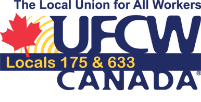Your Pension

Your Pension is important.
According to Statistics Canada, as of January 1, 2021, only about 6.59 million Canadians participated in an active registered pension plan.
Members of UFCW Locals 175 & 633 may participate in a variety of pension plans depending on their workplace and collective agreement.
It is important that you understand the details of your plan and other options that may be available to you. Any member participating in a pension plan should:
- Review their annual pension statements to ensure hours worked, contribution level, length of service, etc., have all been reported correctly, and;
- Keep your address up to date with ALL benefit providers.
Before You Retire
WELL BEFORE YOU PLAN TO RETIRE (at least six months before your retirement date) ensure you have information for any/all pension plans you participated in throughout your working life.
- If you are not sure who to contact:
- Start by getting in touch with former employers to find out the name of your plan(s) and the administrators.
- Contact the Union (or other Unions you belonged to) for information.
- If a previous employer has closed, you can contact the Financial Services Regulatory Authority of Ontario (FSRA) to find out in which plan that employer participated.
- If you’re not sure which pension plan you participate in through your current or recent employment, contact your Union Representative.
Retirement benefits do not start automatically. You must apply. This applies to any private pension plans as well as public pensions like the Canada Pension Plan (CPP).
Financial Planning
No matter what your age, your income level, or how much you have saved, it’s important to speak to a qualified, independent financial adviser – who’s not trying to sell you anything.
The Government of Canada has calculators and other tools available to help you find out how much public pension income you may qualify for. Visit www.canada.ca.
Some good basics to start with:
- Make a plan.
- Don’t wait too long to start that plan (it’s never too early to think about it)
- Consult a professional Financial Adviser
- Have a Will and update it as necessary.
- Designate beneficiaries for each of your plans (including Life Insurance, etc.)
- Consider your expenses in retirement (hobbies, living situation, travel, care for other family members, etc.).
- Find out what retirement income you’re entitled to.
Types of Retirement Income
For all retirement income you must either apply or inform the plan administrators of your intended retirement date.
Canada Pension Plan (CPP)
Provides monthly payments to retirees who worked in Canada & contributed to the Plan during their employment.
Old Age Security (OAS)
Provides monthly payments to most Canadians (65 or older) who qualify.
Guaranteed Income Supplement (GIS)
Provides additional money to low-income seniors who qualify.
Defined Benefit Pension (DB)
A DB plan requires fluctuating contribution amounts and defines the ultimate pension benefit to be provided in accordance with the formula, usually based on years of service, earnings, on a flat rate, etc.
Defined Contribution Pension (DC)
DC plans define contribution amounts required instead of the benefit. At retirement, the benefit amount is based on the accumulated contributions & investment return in the member’s account.
Multi-Employer Pension Plan (MEPP)
A plan in which two or more unrelated employers participate & contribute to the same plan. A MEPP can be a DB or DC plan, or a combination of both.

